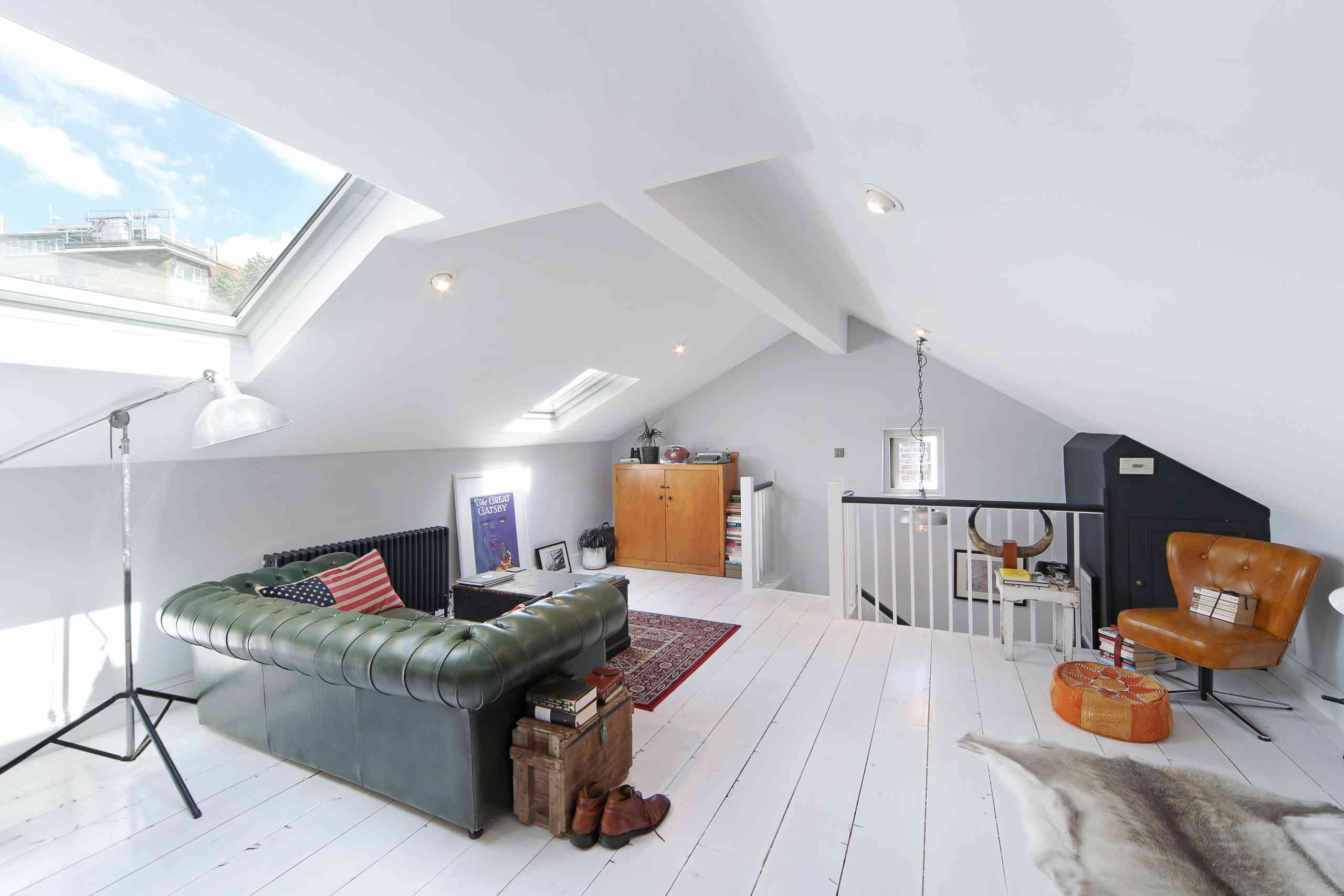Loft conversion pictured above by Stephen, interior designer from Hackney, London. Click here see more and shortlist him for your home project.
Loft conversions add valuable living space to a home – whether you need an extra bedroom, creative space or home office. Loft conversions can also add 20% onto the value of a house (depending on the area, extension and house size). Loft conversions are often considered to add the most value to a home, compared to extensions for example. This is certainly the case in dense urban areas like London, where garden space to extend outwards is precious, and one in five homes in London don’t even have a garden to utilise in that way.
Of course, a lot of the benefits that come with a loft conversion will only be realised if the building project itself is successful. There are some common pitfalls that can occur with a loft conversion, and most of them can be avoided during the design and planning phase. If you plan your loft conversion well, you’ll not only get fantastic results, but the process of achieving it will be much less stressful for everyone involved.
To help you plan your loft conversion for exceptional results and a smooth building process, here are our key ‘dos and don’ts’ to consider.
Do
Do make sure you are allowed to convert your loft. Not all loft types need planning permission, but some do. There could also be restrictions if you are in a conservation area, or if your property is listed.
It is also sensible to use an experienced architect or loft extension company who is able to guide you through the process of identifying which statutory obligations you need to fulfil, in the quickest and most effective way. They can also discuss the legal implications of different loft conversion options for your home before you proceed.
Do
Do have a professional to manage the build, rather than trying to manage it yourself. The best loft conversion companies have a site manager who will go through all the planning and maintain regular communication with you throughout the build.
Do
Do have an idea of what you want your loft conversion to be used for. This is important because it determines certain features you may want in the room. Plumbing, for example, would be a feature of an en-suite bedroom. If you’re using the space as an office throughout the day, you may want more skylights.
There may be additional requirements that need to be met in relation to space standards and building regulations, depending on the intended use. Those regulations relate to headroom, fire and safety compliance, insulation, staircase inclusion, escape route rules and more. Certification of building regulation compliance will almost certainly be needed if you come to sell your house.
Don’t
Don’t just accept the cheapest quote you are given. Too often, a contractor who quotes a very low price will try and to re-coup this cost by cutting corners down the line. It’s important to compare contractors and make your final decision on more than the cost.
Do they answer all your questions? Are they friendly? Are they pushing to close the sale all the time? Quotes should take second place to the overall feeling you have about the company and working with them. This is such an important investment, it has to be the right fit.
Don’t
Don’t start the loft conversion process without knowing your main budget, and contingency budget. Having a main budget ensures that there is some control over the cost of the process, and it is something you can discuss with your architect and/or the loft conversion company, to make sure the project stays within budget.
However, even with all the preparation in the world, unexpected things crop up during renovations. Having a contingency fund of around 10% is a sensible idea, so if something does happen that requires a monetary injection, you’re prepared.
Don’t
Don’t forget to inform your neighbours of your plans. If you’re working on the wall you share, you’ll need a party wall agreement with them.
Even if you won’t be working on a shared wall with the neighbour, it is only courteous to let them know that you’re having work done.
‘The meeting of preparation with opportunity generates the offspring we call luck.’ – Tony Robbins
We hope the dos and don’ts above provide a good starting point as you move closer to planning your dream loft conversion. With the right choices, research and trusted loft conversion company you can have a valuable, beautiful new space in your property to boost your lifestyle in multiple ways for years to come.


